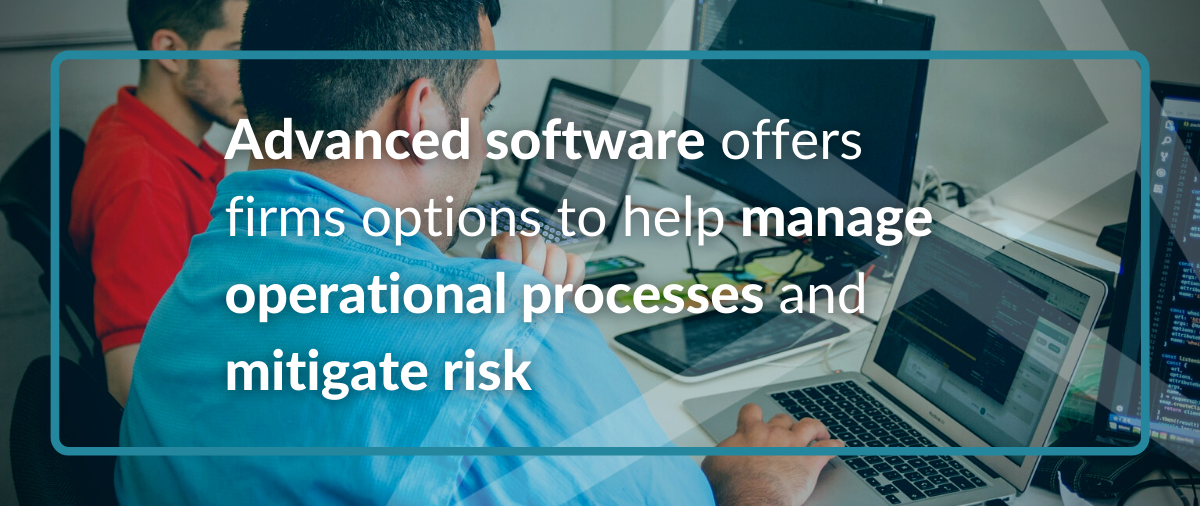Risk is an unavoidable part of life, and it’s inextricably woven into every part of the financial services firm. Moreover, the various groups within firms have different views on risk and how to best mitigate it. Our latest insight examines the types of risk that are encountered by operations, the approaches used to mitigate risks, and the role software can play in risk management and mitigation.
The role of operations in back-office processes
At a high level, operations teams are responsible for support processes such as reconciliation, margin validation, and payment facilitation. They’re also tasked with maintaining broker back-office relationships, ensuring accuracy in book-keeping, and carrying out project work such as onboarding new brokers or ensuring a firm can trade necessary markets or products. Each of these responsibilities entails multiple types of risk: operational, financial, and reputational.
Reconciliations and margin validation are areas of particular concern
In particular, Operations regularly carries out two processes that involve increased levels of risk. The two processes that carry the most risk are found in:
- Reconciliation: When firms have numerous reconciliation practices, from top-day trade reconciliations to positions to cash, they need to ensure that what they know is consistent with what their brokers know. This consistency ultimately eliminates misreporting, reduces delivery risk, and ensures that margin requirements are accurately presented.
- Margin Validation: Even though firms have reconciled activity and positions, they should consider independently estimating their margin requirements to ensure they are consistent with the demands of the broker. Within listed derivative markets, brokers receive margin requirements from clearinghouses, then perform their calculations to make sure that they disseminate the correct requirements to their clients. It’s prudent to verify that the broker requirements are accurate. Doing so will also act as a check to ensure that positions are reflected correctly.
Today, advanced software offers firms options to help manage operational processes and mitigate risk. When it comes to trade matching or reconciliation, there are many considerations firms should keep in mind when selecting a vendor and implementing a match. Fortunately, we’ve developed a comprehensive guide to trade matching that covers every aspect of the process. For margin validation requirements, firms can leverage software to help generate Value at Risk.
Buy or build: Identifying the most cost-effective solution for your firm
The next question facing every firm is whether to build or buy a VaR engine. Developing an in-house engine requires a firm to commit to paying for market data on an ongoing basis. Additionally, the firm must regularly re-invest in the technology resources needed to support such a tool. There are, however, vendors who already have data feeds set up with major brokers and can deliver out-of-the-box solutions at a reasonable price. For example, Theorem offers a reporting and risk solution that can be used across functional areas. Please get in touch to learn more about how a Theorem solution can add value to your back office.
___
About the Author
Rebecca Baldridge, CFA, is an investment professional and financial writer with more than 20 years of experience in creating content and research for asset managers, investment banks, brokers and other financial services clients. She’s worked for some of the biggest names in the industry, including Merrill Lynch Asset Management, JP Morgan Asset Management, BNY Mellon and Franklin Templeton. Rebecca also spent 9 years as an analyst and director of equity research in Moscow, working for several Russian banks. In late 2019, she founded Quartet Communications, a boutique communications firm serving financial services clients. Her writing has been published in outlets including Pensions & Investments, MSNBC.com, Inc. magazine, and Investopedia.com. She holds a B.A. in Russian from Purdue University and an M.S. in Finance from the Krannert Graduate School of Management at Purdue.
